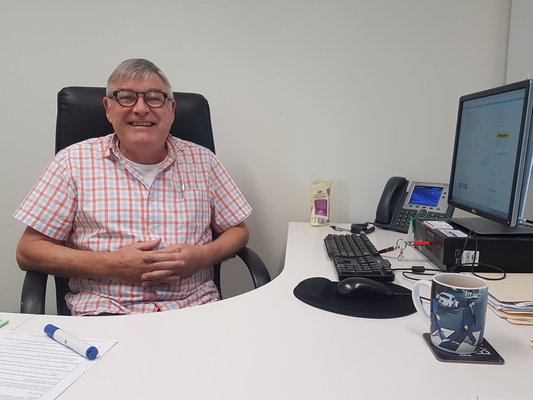
By Luke Voogt
Homeless recovering alcoholic and drug addict Stu wants a hand up, not a hand out.
The 43-year-old is one of many homeless people who are struggling to overcome their addiction due to a lack of long-term rehabilitation programs in Geelong.
“It kind of gets to a point where I lose all hope,” said Stu, who wanted his surname withheld.
“I’ve pretty much been through all the homeless shelters – they’re an absolute cesspool. It’s easier to get drugs in those places then out on the street.”
Stu said his situation was his own fault but he was working hard to get his life back on track.
“I’ve made mistakes but that doesn’t mean I’m any less of a human than the next person.”
“Being an alcoholic is like being a Catholic – you never stop being one, just sometimes you’re not practising.”
When the Indy first spoke to Stu in September he had completed stage one of the Salvation Army’s rehabilitation program – six-nights of withdrawal.
A combination of renovations, bed shortages and an administrative bungle meant he missed out the following 21-day stage two of the program.
“There were two beds available and I was the third person,” he said.
Three months later and Stu is still waiting for a spot in the program.
“Basically, I’ve got to go through the whole process again,” he said.
He has managed to stay off drugs but has lapsed with his drinking.
“It’s kind of a day-by-day situation,” he said.
Salvation Army drug specialist Neil Loxston said the service has three government-funded rehabilitation centres in Corio for each stage of its program.
Patients often take addiction medication during stage one, leaving them listless, Mr Loxston said.
“They’ve got to be as clean as a whistle before they go in to stage two. It’s too dangerous to do cold-turkey.”
The Salvos’ facilities for stage one and two have six beds but because stage one is 15 days shorter it has a higher turnover rate.
This meant vulnerable patients would often be back on the streets without the chance to complete stage two, Mr Loxston said.
“We often get people who are very motivated but there are not enough beds, which increases their risk of relapsing.”
The salvos’ 12-week stage three program has three beds, while the only other local long-term facility is the Christian-based rehabilitation centre Foundation 61 in Mt Duneed.
“They receive no government funding for what they do,” Mr Loxston said.
Foundation 61 has 15 beds but could only house 12 people due to a lack of funding. It has long been operating at full capacity.
To access long-term government-funded services the homeless have to travel to centres in Melbourne, which have very long waiting lists, Mr Loxston said.
“They don’t want to leave their families long.”
Mr Loxston said people like Stu need long-term services in Geelong.
“He’s put his hand up and acknowledged he’s got himself into the situation he’s in. To not give him all the help we can is very disappointing.”
Stu has been an alcoholic for 30 years and a drug addict for 20 after an abusive childhood.
The father of two and grandfather once had a house in west Melbourne and high-paying job at a bank.
But his life went off the rails when his partner kicked him out about five years ago.
“I can’t believe the mum of my kids put up with me for so long,” he said.
With the lack of support services in Geelong, Stu said homeless addicts were more likely to commit crimes than attempt to beat their addiction.
“If they get caught least they’ll get three square meals a day. They’ll get fit and a roof over their head.”
Stu said funding a rehabilitation service in Geelong could save the Government’s money down the track.
“We all know how much it costs the taxpayer to incarcerate someone. It’s not sustainable and it’s only going to get worse.
“There needs to be a change in thinking.”






